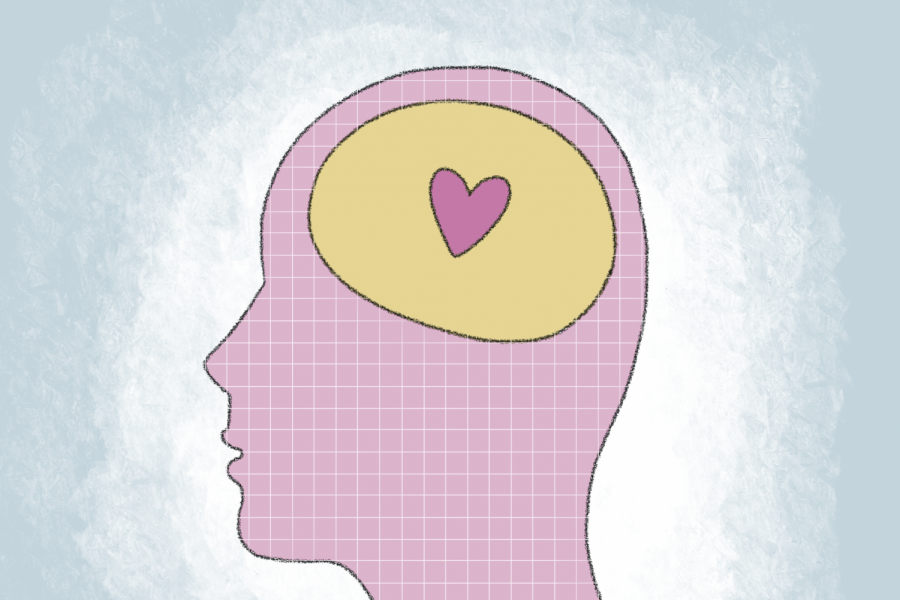A guide to mental health and wellness resources at NU
August 15, 2021
With the transition to college comes a roller coaster of emotions: the prospect of new opportunities accompanied by all sorts of academic, social and personal concerns. After over a year and a half of masking and hand sanitizer hoarding, it might be rough to adapt to your new environment. You’re not alone — not only are your peers in the same boat, but there are myriad resources available at Northwestern to help you take care of your mental health.
Counseling and Psychological Services
CAPS connects students to mental health services — offered free of charge — that fit their needs, from short-term individual counseling to group therapy and workshops. CAPS also provides students the resources to seek long-term therapy and care outside of the University. Students can sign up for an initial consultation on its website to connect with a counselor who will help them develop an individualized care plan. Those receiving individual therapy at CAPS are also eligible for psychiatric services, which allows students to have medication management concurrent with their therapy.
Multicultural Student Affairs
MSA hosts several events and community spaces specific to different racial groups and the LGBTQ+ community. For example, MSA holds a biweekly BIPOC Support Circle, as well as workshops such as the Queer Wellness & Healing Series, inviting queer speakers to emphasize LGBTQ+ voices in personal wellness. MSA’s weekly newsletter provides updates on support circles and community spaces.
Religious and Spiritual Life
RSL offers a variety of programs and services regardless of a student’s religious affiliation. During Winter Quarter, there’s the 40 Days of Spiritual Wellness series where students can join a mindfulness space to self-reflect. Along with weekly drop-in, guided meditation offered on select days, RSL also offers a paid eight-week Mindfulness-Based Stress Reduction program to teach emotional resilience and stress and pain management. There are also three chaplains students can talk to confidentially via appointment as well as meditation and prayer rooms available on campus.
Center for Awareness, Response and Education
CARE provides a safe confidential space to meet the needs of students impacted by sexual violence. After making an appointment on CARE’s website, students are connected with an advisor to process trauma, build coping skills and provide resources and referrals for legal, medical and counseling advice. From Surviving to Thriving is a support group co-led by CARE and CAPS that provides a healing space for sexual violence survivors.
ResilientNU
Health Promotion and Wellness staff and students co-facilitate ResilientNU’s medium-sized quarterly cohorts to help students learn techniques and for stress, emotion and negative thought management. The goal of this five-week crash course is to be equipped with the tools to practice mindfulness and better uphold personal wellness. Students can sign up for cohorts online through an interest form.
Student organizations
Along with staff-provided resources, there are several student groups on campus dedicated to mental wellness. Active Minds, Bhakti Yoga Society and Happiness Club are just some student-led organizations dedicated to teaching mindfulness and improving mental health on campus.
Wellness Coaching
Whether you’re looking to improve your sleep and eating habits or are looking to develop better time management and stress coping strategies, Wellness Coaching may be an option to consider. You can connect with a coach who will help you develop and achieve health and wellness goals in two to four free virtual sessions.
Self-help resources
The CAPS website also provides a number of self-help resources that students can use. Breathe provides a number of self-guided meditations, educational videos and mindfulness exercises to help students manage stress and anxiety. There’s also WellTrack, a free wellness tracker for students to understand their mental health through mood assessments, educational modules and meditations. It uses cognitive behavioral therapy techniques that are supplemental to other mental health services.
Email: [email protected]
Twitter: @amittal27
Related Stories:
— Reform CAPS paints the Rock, calls for transparency, improved mental health resources for students
— State Sen. Laura Fine introduces bills focusing on mental health care
— CARE and Women’s Center to start support group for sexual violence survivors


